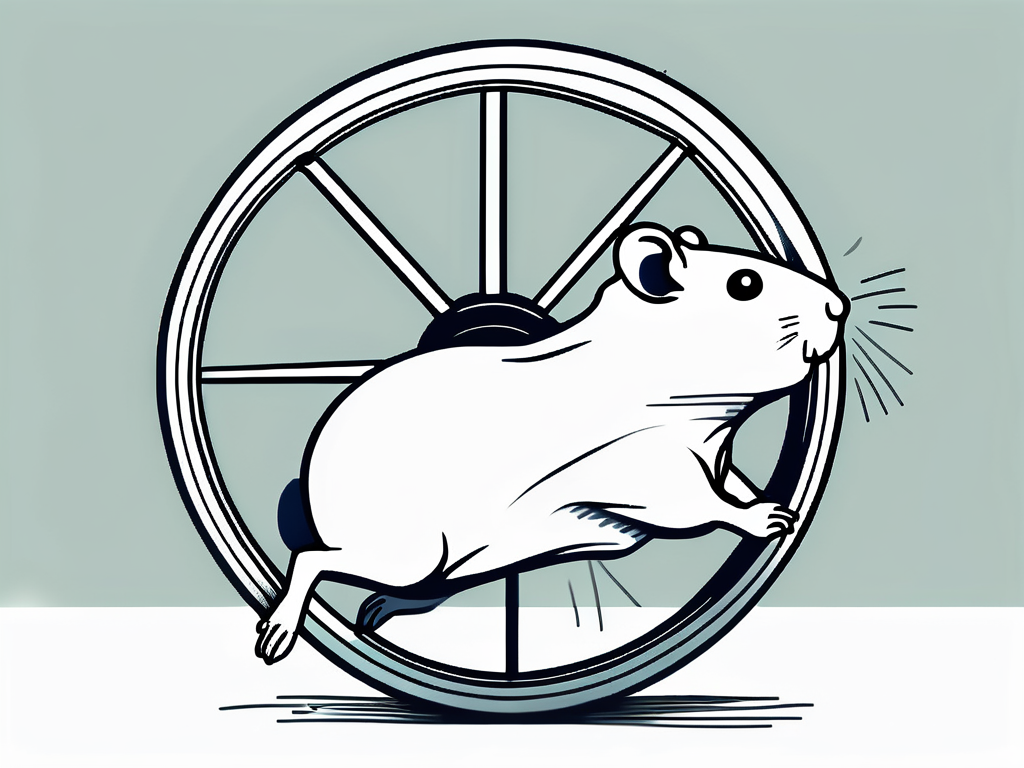Motivation is a concept that has been romanticized and idealized in our society. We are often led to believe that motivation is the key to success and that we must constantly be motivated in order to achieve our goals. However, this traditional view of motivation is flawed and can often leave us feeling stuck and unmotivated.
Understanding the Concept of Motivation
Before we delve into the prevailing myths about motivation, it's important to first understand what motivation really is. Traditionally, motivation has been seen as an internal force that drives us to take action. It's the spark that propels us forward and keeps us on track towards our goals.

However, a modern interpretation of motivation suggests that it is not a constant state, but rather a temporary feeling that comes and goes. It is not something that we can rely on to always be there, pushing us forward. This shift in perspective is crucial to understanding why the prevailing myths about motivation are holding us back.
One interesting aspect of motivation is the distinction between intrinsic and extrinsic motivation. Intrinsic motivation comes from within, driven by personal enjoyment or satisfaction in the task itself. On the other hand, extrinsic motivation is derived from external factors such as rewards, praise, or recognition. Understanding these different types of motivation can help individuals tailor their approaches to staying motivated in various situations.
Moreover, the concept of motivation is closely linked to the field of psychology, particularly in areas such as behavioral psychology and cognitive psychology. Behavioral psychologists study how our behaviors are influenced by external stimuli, while cognitive psychologists delve into the mental processes that drive our motivation and decision-making. By exploring these psychological perspectives, we can gain a deeper understanding of the complex mechanisms behind what drives us to act and achieve our goals.
The Prevailing Myths About Motivation
The Myth of Constant Motivation
One of the most prevalent myths about motivation is that it is something we should always feel. We are led to believe that if we aren't constantly motivated, there is something wrong with us or that we lack the willpower to achieve our goals. This myth sets unrealistic expectations and can leave us feeling demoralized when our motivation wanes.
The truth is, motivation naturally fluctuates. It is influenced by various factors such as external circumstances, mood, and energy levels. Understanding and accepting this reality can help us navigate through moments of low motivation without becoming discouraged.
It's important to recognize that motivation is not a constant state but rather a dynamic force that ebbs and flows. Just like our energy levels, motivation can be affected by factors such as stress, fatigue, and even external events. By acknowledging the transient nature of motivation, we can learn to work with it rather than against it.
The Myth of Motivation as a Prerequisite for Action
Another common myth about motivation is that we need to feel motivated before we can take action. We wait for motivation to strike before we start working towards our goals, believing that it will provide us with the necessary drive and focus.
However, this belief is flawed. Taking action actually leads to motivation, not the other way around. When we start working on a task, even if we don't initially feel motivated, we begin to build momentum and can tap into a state of flow. By taking small steps towards our goals, we generate the motivation and drive we need to keep going.
In fact, research in psychology has shown that the act of starting a task can often be the hardest part. Once we overcome the initial inertia and begin working, our motivation tends to follow suit. This phenomenon is known as the "action-reaction" principle, where action precedes motivation rather than the other way around.
How These Myths Keep You Stuck
The Paralysis of Waiting for Motivation
Waiting for motivation to strike before taking action can paralyze us and prevent us from making progress. We become trapped in a cycle of waiting for the perfect moment when we feel motivated and inspired, only to find ourselves never getting started.

By succumbing to this myth, we miss out on countless opportunities for growth and accomplishment. Instead, we need to adopt a proactive approach and take action regardless of whether we feel motivated or not. It is through action that motivation will follow.
The Cycle of Guilt and Demotivation
Another way these myths keep us stuck is through a cycle of guilt and demotivation. When we believe that we should always be motivated and that our lack of motivation is a personal failing, we can easily fall into a spiral of guilt and self-doubt.
We beat ourselves up for not being motivated enough and become demotivated as a result. This negative cycle only perpetuates our feelings of being stuck and prevents us from moving forward. Breaking free from this pattern requires a shift in perspective and an understanding that motivation is not a reflection of our worth or ability.
Rethinking Motivation: A New Perspective
Motivation as a Result, Not a Cause
It's time to reframe our understanding of motivation. Rather than seeing it as a prerequisite for action, we need to recognize that motivation is often a result of action. When we take the first step towards our goals, we create momentum and generate a sense of purpose that fuels our motivation.

By shifting our focus from waiting for motivation to taking action, we become active participants in our own motivation. We no longer have to rely on the fleeting feelings of motivation, but rather cultivate it from within through our consistent efforts.
The Role of Discipline and Habit Formation
In addition to rethinking motivation, we must also acknowledge the role of discipline and habit formation in achieving our goals. While motivation can provide a temporary boost, it is discipline that carries us through when motivation wanes.
By cultivating discipline and creating habits that align with our goals, we set ourselves up for long-term success. Discipline allows us to stay committed and consistent, even in the face of challenges or moments of low motivation.
Practical Steps to Overcome the Motivation Myth
Strategies for Building Sustainable Habits
One practical step we can take to overcome the motivation myth is to focus on building sustainable habits. Rather than relying solely on motivation to get us through, we can create routines and rituals that support our goals.
By consistently engaging in these habits, we reduce our reliance on motivation and instead rely on the power of consistency to keep us on track. Start small, pick one habit that aligns with your goals, and gradually build from there.
Tips for Cultivating Discipline Over Dependence on Motivation
In addition to building habits, cultivating discipline is essential for overcoming the motivation myth. Here are a few tips to help you develop discipline:
- Set clear goals and establish a plan of action. Having a clear roadmap will keep you motivated and focused.
- Break tasks into smaller, manageable chunks. This makes them less overwhelming and easier to tackle, even when motivation is lacking.
- Find an accountability partner or join a supportive community. Having others to hold you accountable can provide the extra motivation and encouragement you need.
- Reward yourself for staying disciplined. Celebrate your progress and acknowledge your efforts, even when motivation is not present.
By implementing these strategies and focusing on discipline rather than relying on motivation, you can break free from the myth that motivation is the sole driver of success.
In conclusion, the myth about motivation has been keeping us stuck for far too long. It's time to challenge these misconceptions and adopt a new perspective. Motivation is not a constant state, nor is it a prerequisite for action. By understanding and accepting the natural fluctuations of motivation, and focusing on cultivating discipline and building sustainable habits, we can overcome the motivation myth and unlock our full potential. Let go of the notion that you must always be motivated and start taking action today. The path to success is forged not by constant motivation, but by consistent effort and a redefined understanding of what it means to be truly motivated.




